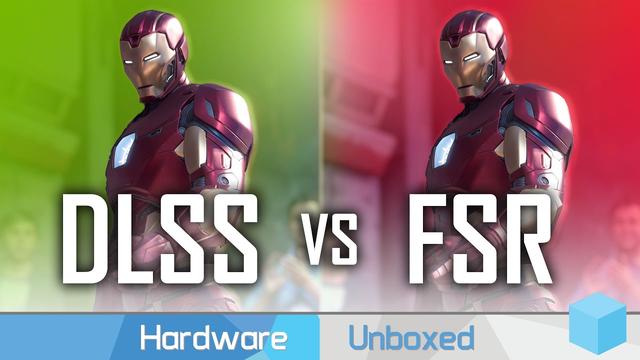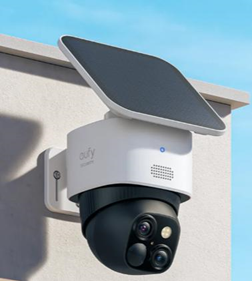When it comes to graphics cards, you've got two options: AMD or Nvidia. These two tech behemoths have dominated the graphics card conversation for nearly two decades, and it's been a long time since any other tech outfit took a good shot at the two.
Intel's upcoming Arc Alchemist graphics card aside, choosing between the two is difficult. If you buy a new GPU, you're either buying from Team Red or Team Green. So, does it really make a difference who you buy from? Isn't all GPU performance roughly similar? Can't you expect a similar level of gaming performance, no matter if you buy an Nvidia or an AMD GPU?
AMD vs. Nvidia: Does It Really Matter?
PC hardware enthusiasts worldwide are spitting coffee across their screens as they read. Debates about the merits of each GPU manufacturer are a never-ending source of conversation, especially since AMD rolled its socks up and clawed back Nvidia's considerable advantage with the launch of its Ryzen GPUs.
Then there are advanced memory caches, differences in superscaling implementation, development of Compute Units and CUDA Cores, and on and on it goes.
However, for many would-be gamers, those (admittedly very interesting) specs don't actually mean much. The raw figures and processing power on paper don't marry to real-world performance, and not everyone has the time (or want) to learn about the differences between AMD's Compute Units and Nvidia's CUDA Cores.
MAKEUSEOF VIDEO OF THE DAYFor most users, the simple question is, will this graphics card make my games look better? Will installing an AMD GPU give me better frame rates than an Nvidia GPU? And even then, that's assuming you're using gaming hardware that allows you to swap your hardware out and make that decision. If your primary gaming machine is a console like the PlayStation 5 or Xbox Series X, the conversation will wash over you, as both machines use AMD hardware. There, you're an AMD fan, and you didn't even know it—welcome to Team Red.
AMD vs. Nvidia: Who Makes the Best GPUs?
Perhaps the question is best broached from another perspective. Who makes the best graphics cards out of Nvidia and AMD?

Again, answering the question isn't easy without getting involved with specs and costs. But if you're building out or buying a new PC, these are valid questions, and understanding at least some of what's being sold to you is important. At the very least, you'll understand more about what to expect from your graphics card, and you could save yourself some extra pennies when PC hardware prices continue to rise.
So, let's look at a few factors that might help you figure out which graphics card you want to buy.
1. Performance
At the top end of the GPU market, you'll find incredible hardware like the Nvidia RTX 3090 and the AMD RX 6900 XT, and the RTX 3080 and RX 6800 XT. The Nvidia RTX 3070 and RTX 3060 Ti bookend AMD's RX 6700 XT, but they're all there in the mix.
All of these equivalent cards offer similar performance, give or take a few frames per second, along with the other hardware in your machine. However, Nvidia typically edges just ahead in terms of outright power, boosted by the additional tech it brings to the table, such as DLSS, which is undoubtedly better than AMD's Fidelity FX.
Related: Nvidia DLSS vs. AMD FidelityFX: What's the Difference & What Looks Better?
So, in terms of gaming performance, an Nvidia GPU is likely the better option, but you won't go wrong with an AMD card either.
2. Price
Next up, price. If performance is similar outside of advanced features like ray tracing and upscaling, the next best metric is price. Even if you think it doesn't matter which GPU manufacturer you choose, the difference in price between AMD and Nvidia may cause you to reconsider.
Price is one aspect where AMD typically beats out Nvidia. For example, Nvidia's RTX 3080 has an MSRP of $699, while the equivalent AMD card, the RX 6800 XT, has an MSRP of $649.
Now, what're 50 bucks when you're already spending that much on a GPU? The difficulty is that currently, GPU prices are drastically inflated due to chip shortages, manufacturing issues, energy inflation, crypto mining, scalpers, and so on. Where there was just a $50 gap between these two equivalent GPUs at launch, the current price is much, much higher—and with a larger gap between the two.
According to Tom's Hardware, the average price for an Nvidia GeForce RTX 3080 on eBay was $1,783 in December 2021, while the AMD Radeon RX 6800 XT was substantially cheaper, averaging $1,387. That difference of around $400 is significant, maybe allowing you to spend extra on other hardware components such as more or faster RAM.
Related: Why PC Hardware Prices Are Set to Rise Again in 2022
3. Availability
Following on from that, availability is another problem facing both GPU manufacturers. As Nvidia's GPUs are better for cryptocurrency mining and hold a slight edge when it comes to gaming performance, they're harder to get hold of (due to global shortages, as above). As a result, you'll struggle to find an Nvidia at MSRP. Whereas, you stand a better chance of picking up an AMD GPU at a lower price, with wider availability in general.
So, does it matter which GPU you buy? When it comes to availability, it may come down simply to what is available when you have the funds to spend and not much else.
Which GPU Should You Buy? AMD or Nvidia?
When it comes down to it, the current state of the GPU market doesn't make it easy for anyone to buy new hardware, let alone be picky when it comes to choosing between Nvidia and AMD. If you can hold out or splash the extra cash required for the GPU you really want, go for it. Otherwise, don't get too hung up on the smaller details.
Remember, if you're upgrading from an older GPU, say an Nvidia GTX 980 or an AMD RX 580, to a sparkling RTX 3080 or RX 6800 XT, your graphics experience is going to improve an unfathomable amount, regardless of extra features, cache size, upscaling, or otherwise. Sure, Nvidia's ray tracing tech is streets ahead of AMD's equivalent. But a top-end AMD GPU will still play your games at the highest settings at 4K, which is more than enough for most people.
7 Things We Know About Intel Arc AlchemistIs this an AMD and Nvidia GPU competitor at last? Let's find out.
Read NextShareTweetEmail Related TopicsAbout The AuthorGavin Phillips(1018 Articles Published)Gavin is the Junior Editor for Technology Explained, a regular contributor to the Really Useful Podcast, and a frequent product reviewer. He has a degree in Contemporary Writing pillaged from the hills of Devon, and more than a decade of professional writing experience. He enjoys copious amounts of tea, board games, and football.
MoreFrom Gavin PhillipsSubscribe to our newsletter
Join our newsletter for tech tips, reviews, free ebooks, and exclusive deals!
Click here to subscribe








